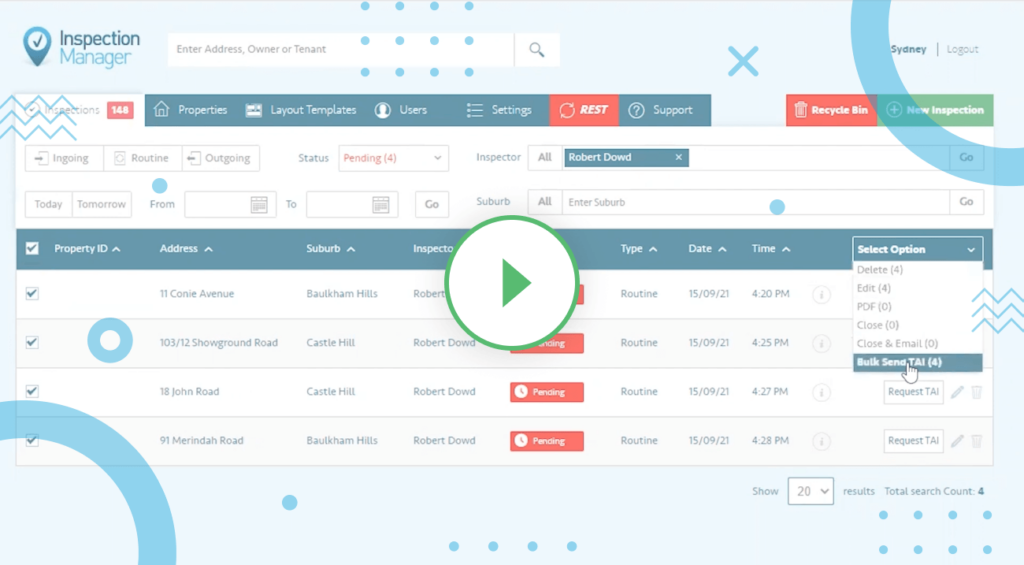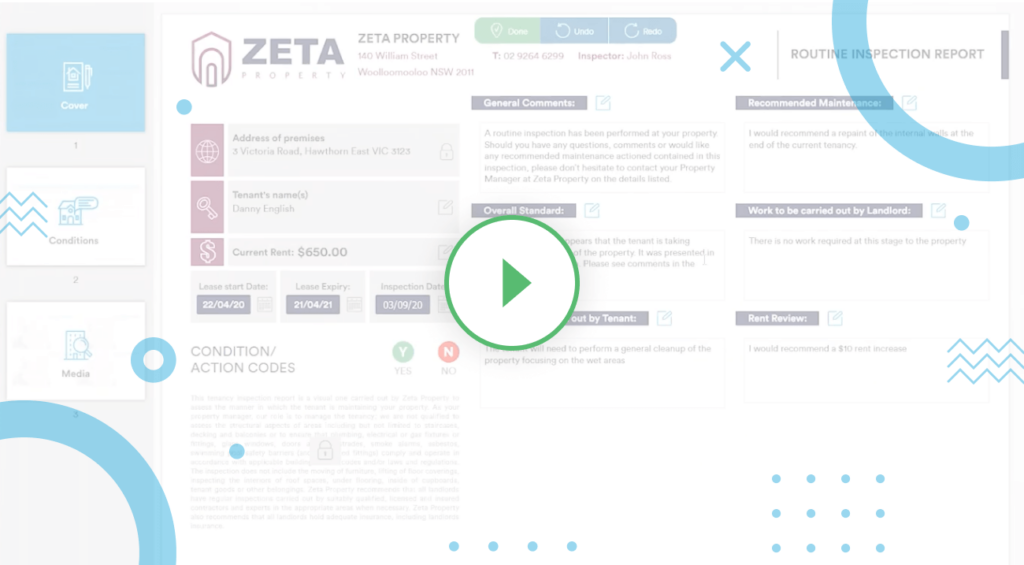What helps improve your property management skills? According to industry experts, it’s about avoiding a few common pitfalls. If these are overlooked, they may escalate into major problems, and can cause serious damage to your performance and wellbeing.
Here are some of the most common property management mistakes that you need to be aware of:
1. Not planning ahead or having a “too busy” mindset
When there are a dozen urgent tasks on your mind, it’s tempting to skip the planning and try to handle everything at once. This can stop you from working efficiently due to a lack of focus and attempts to multitask. This may lead to feeling overwhelmed and burnt-out due to no sense of direction and understanding of priorities.
Planning is essential for any job that involves a large workload. Try to begin work with a list of all the tasks that need to be done by the end of the day, order them according to priority and try to focus on completing one task at a time before starting the next one. Being organised gives you greater mental clarity and attention to detail. You are more likely to ensure that every loose end is tied, every request is followed up and every problem is solved.
2. Not being thorough with the tenant selection process
Tenant screening is another area that property managers may need to pay extra attention to. It is important to try review identification copies, references from previous landlords or agents and employment details of potential tenants. Try to check the rental history of applicants using the Tenant Internet Database. Don’t forget to lodge the details of defaulting tenants after they vacate. This can expose tenants who have breached a rental contract in the past and prevents other property managers from renting them a property.
By trying to implement effective tenant screening procedures can screen out undesirable tenants. The time you invest in completing thorough background checks is nothing compared to the costs of renting a property to the wrong people. This could be anything from rental arrears, property damages to hidden drug labs and legal disputes.
3. Failing to communicate with landlords
The quality of communication is one of the primary factors determining a property manager’s success. Property managers are expected to promptly return calls and emails. The easiest way to manage this is to try set aside specific time slots during the day to return calls and emails.
While many property managers provide excellent tenant inductions, they should attempt do the same for landlords as well. This can lead to conflicts between tenants and landlords around issues such as wear and tear, repairs and maintenance. Breakdowns in communication can lead to misunderstandings, poor rapport and even lost clients.
Property managers can prevent this by trying conduct a complete landlord induction using the property owner’s handbook. By being proactive and keeping communication channels open, property managers can attempt to ensure long-term tenancies, lower vacancy rates, and greater client satisfaction.
4. Not documenting important information
As a property manager, you’ll have copies of formal property management agreements with clients and leasing agreements with tenants. Apart from these documents, you should also be keeping written records of other important information. This can include photos and timestamps of damages, file notes of actions taken, conversations logs, and details of maintenance requests. Try to keep tabs and document all these import information. Proper documentation can also provide you with legal protection if the need ever arises.
5. Lack of attention to routine inspections and maintenance
When you schedule too many routine inspections in a set timeframe, the inspections can become rushed, and critical issues can be overlooked. At the other extreme, it’s an equally bad idea to delay routine inspections and maintenance. In both cases, this can result in tenants leaving behind excessive damage when they move out which can cost you time, money and even your reputation.
It’s important to inspect properties on a regular basis so you can try identify and fix minor problems before they may become worse. But set realistic expectations for how many you can complete in a set timeframe so that you can be thorough with each inspection. Not only will this help prevent costly damages in the future, but it will also keep tenants on their toes by giving them the impression you are responsible and attentive.
When maintenance problems arise (even minor ones), try not to let your tenants to handle them unless you want to risk additional damages and liability for potential injury. Hiring the wrong tradesperson can also have costly repercussions, it’s important to select contractors based on their level of experience and not on price. An experienced contractor will always come with a higher fee but will produce quality results that save you money in the long run. An inexperienced contractor, on the other hand, may charge less, but the job they complete is likely to require attention again in the near future.
6. Being too tolerant with rental arrears
Another common property management pitfall is not promptly attending to rental arrears. Allowing the tenant to be over seven days or more behind may result in them being unable to pay back the overdue amount. Nearly all abandonments and evictions can be caused by a failure to pay rent. This means that being tolerant with rental arrears can result in damaging your relationship with both tenants and landlords.
Early intervention may seem harsh but can allow the tenant to stay in the accommodation, benefiting all parties in the long run. Make it a habit to contact the tenant when they are only a few days behind so you can try tackle the problem before it gets out of hand.
7. Discounting fees and managing too many properties
This is the primary reason for the high burnout and turnover rates in the property management industry. It’s a common belief within property management that charging lower fees is a sign of good service. As many property managers receive little-to-no training in winning new business, we can hardly blame them for this mistaken assumption.
Due to possible low service fees, property managers usually manage a larger number of properties to justify their position financially within their agency. Having more properties to manage can lead to lower service quality and increased burnout and turnover. It can also be tempting to sign up almost every property you can without considering whether the deal is profitable or not. Some of these properties may be in poor condition and difficult to manage. This further contributes to burnout. In the end, the company can be left with mostly new and inexperienced staff, which can result in poor service overall.
To try overcome this issue, property management agencies should attempt to invest in training their staff on how to win new business that will generate profits. Property managers should learn how to handle common fee objections using effective techniques that don’t involve discounting fees. By doing this, property managers may be able to manage fewer properties, which can allow them to focus on the quality of their service while avoiding stress and burnout. A great resource for learning more about optimising your fee’s can be found over on the IGT website, or read their article on dealing with fee increase objections to learn more.













